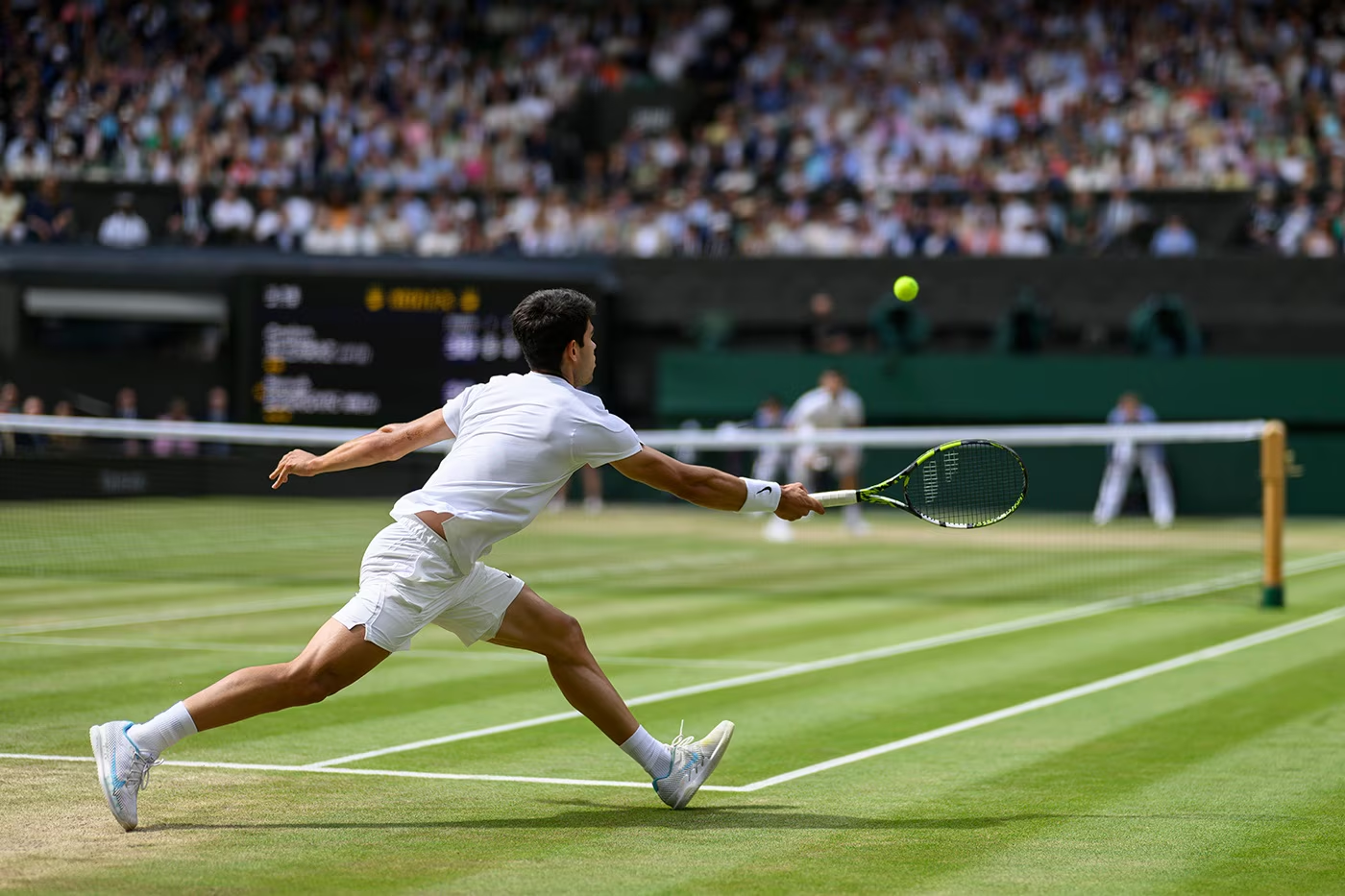
The FOMO alarm (acronym for Fear of missing out, the feeling of missing out on social media and, in my case, in the press and media in general) awakens in me at every tennis tournament Wimbledon, which starts this Monday (30/6), in London. And now, with the clock ticking, I wonder why. It's a sport I've always admired for inspiring discipline, strategy, resilience and strength, but I barely know its rules. So why Wimbledon?
Maybe because it brings together the world's tennis elite? Yes, but the other three Grand Slams (Australian Open, Roland Garros and US Open) also feature competitions between the greatest. Why did it consecrate players like the Swiss Roger Federer and the American Serena Williams? In that case, Roland Garros would have the same effect, after all, we all love Guga Kuerten, three-time champion on the French clay – not to mention the Spaniard Rafael Nadal with 14 titles in the most charming tournament in Paris.
“Wimbledon has reputational attributes that positively impact its credibility and influence, which earn trust and encourage engagement among its audiences.”
Certainly, because my gaze goes far beyond the games and the irresistible zooms in on the audience to peek into the Royal Box, where the tournament's patron, the Princess of Wales Kate Middleton, and other members of the royal family receive guests. Wimbledon, the oldest and most classic tennis championship, which began in 1877, has reputational attributes that positively impact its credibility and influence, which earn trust and stimulate engagement from its audiences.
One of its greatest attributes is the grass court. Since 1988, Wimbledon has been the only Grand Slam to have played on this type of court, which dates back to the beginning of the sport, causes little friction with the ball and, therefore, speeds up the match. Many call it sacred. The sacred repertoire includes all 19 courts used in the tournament, especially the central one, where the main matches take place. For Rafael Nadal, it is a “cathedral”. The tennis player, a clay-court specialist, beat Federer on the grass at Wimbledon in the 2008 final, considered one of the greatest finals in the history of the tournament.
Since 1880, Wimbledon has seen victories and defeats with tennis players dressed in white. The rule, which was instituted to try to reduce the visual impact of sweat on players' clothing, considered inappropriate in the 19th century, has remained in place to this day, with a slight relaxation. Only recently, in 2022, did tennis players become allowed to wear clothes of another color – as long as they were under their white uniforms. Why? Everything communicates tradition and elegance.
No disregard for the tournament’s unique image and character is strategic for the All England Club, or simply The Club, which hosts and participates in the organization of the tournament. Those responsible for the organization of the event build and maintain the positive reputation of the championship by forming long-term partnerships with top-tier brands. Among these are: Rolex, the official timekeeper of the championships since 1978, and Slazenger, the supplier of tennis balls since 1902. Polo Ralph Lauren, which equips all Wimbledon umpires, is another name that shares prestige with the championships.
And in these times when technology can help broaden audience awareness, Wimbledon is investing in several artificial intelligence projects to increase engagement. One of them, which will be present at the 2025 championship, is Match Chat, developed by IBM. The interactive AI assistant can answer fans’ questions in real time during live singles matches and in post-match coverage. Questions can be generalized, prompted, or specific.
If, over the course of almost 150 years, Wimbledon has cultivated its reputation based on tradition, it has also never stopped innovating. It has built this trajectory in a conscious, permanent and consistent manner. And, each year, it is able to increase the fascination of fans (and admirers of the sport without any repertoire) who face queues and pay dearly for their coveted tickets or do not miss the broadcast of their matches. I am among them.

Christianne Schmitt is editor of the Reputation Feed
christianne.schmitt@ankreputation.com.br
. The signed articles reflect the opinion of the authors